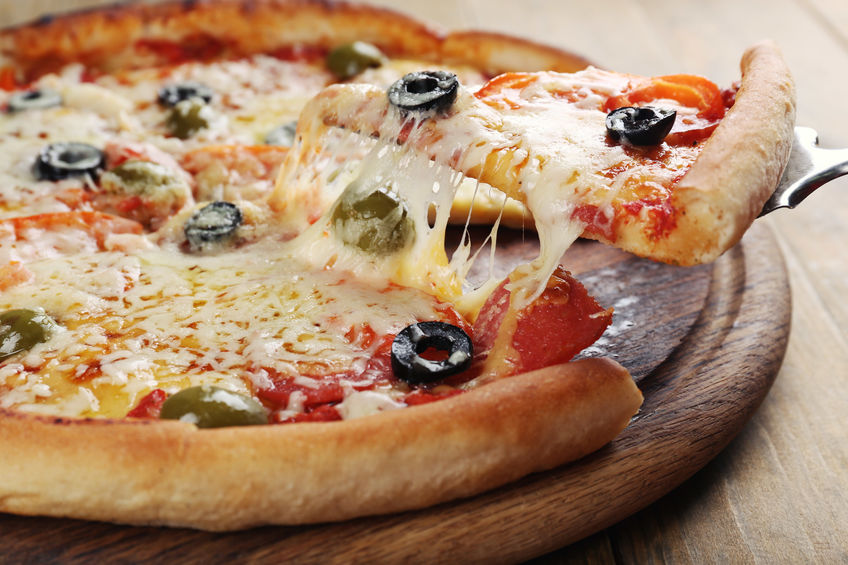By John Salak –
FINALLY. Some good news for those pizza lovers who fear over-indulging in a big, cheese and sauce smothered pie is a nutritional death knell. A breaking study out of the Centre for Nutrition, Exercise and Metabolism at the University of Bath in Britain found that if an otherwise healthy person overindulges occasionally in pizza—like eating twice as much or more than usual–there are no immediate, negative consequences in terms of losing metabolic control.
“We all know the long-term risks of over-indulgence with food when it comes to obesity, type 2 diabetes and cardiovascular disease, but we know much less about some of the immediate effects ‘all you can eat’ places on the body. Our findings show that the body actually copes remarkably well when faced with a massive and sudden calorie excess. Healthy humans can eat twice as much as ‘full’ and deal effectively with this huge initial energy surplus,” reported Aaron Hengist, the lead researcher.
The Bath study specifically focused on healthy young men consuming up to 3,000 calories from pizza at a sitting, which is well above the recommended daily intake let alone the recommended intake for one meal. The result, nonetheless, showed these healthy bodies held up well to the pizza onslaught. After eating, blood sugar levels and blood lipids were normal or just slightly elevated and the amount of insulin in the blood was about 50 percent higher than normal.
Not surprisingly, four hours after indulging the participants felt sleepy and lethargic and had no desire to eat anything else.
“This study reveals that humans are capable of eating twice as much food as is needed to make us feel ‘full’, but that our bodies are well adapted to an excessive delivery of dietary nutrients at one huge meal. Specifically, those tested in this study were able to efficiently use or store the nutrients they ingested during the pizza-eating challenge, such that the levels of sugar and fats in their blood were not much higher than when they ate half as much food,” noted Professor James Betts, who oversaw the research.
Betts, however, was quick to note that the threat from overindulgence isn’t the occasional binge but rather repeated splurges. “The main problem with overeating is that it adds more stored energy to our bodies in the form of fat, which can culminate in obesity if you overeat day after day,” he explained.
This isn’t the only good news for pizza lovers. Other reports indicated that pizza offers a surprisingly high number of nutritional benefits, depending on preparation and toppings. Insider.com, in fact, noted up to 10 potential benefits.
These include being a gateway for increased vegetable consumption that can come from adding lots of the right toppings. The average slice also provides about 12 grams of protein, mainly from cheese, and the cooked tomatoes central to a good pie are high in lycopene, which can help lower blood pressure and cholesterol levels.
Use whole wheat crust and the nutritional value of your pizza jumps even higher. Back to the cheese again. It is a great source of calcium, which helps build and maintain strong bones.
Okay, no one is saying pizza is the Willie Mays of health foods. Eat This, Not That! warns that pizza is loaded in saturated fats and sodium. Also, piling on sausage, pepperoni or other fatty meats is probably not going to do anyone’s heart any good. Chances are a person’s metabolism is going to slow way down after a big pizza much and fatigue will set in, as noted in the Bath study. And as a kicker, the carbohydrates consumed probably will be processed at simple sugars, which can trigger high insulin levels that will remain in for longer periods of time.
So sure, go head and dive into that pizza, even one that’s not exactly made with whole wheat dough and is topped with vegetables. Just don’t do it on a regular basis.










